The prospect of North and South Korea unification
(Baonghean.vn) - In 2060, decades after South Korea and North Korea made history by unifying the two regions.
It has been a long and difficult process, but the Korean peninsula is now home to the world's 10th largest economy, with a Gross National Product (GDP) of $5.5 trillion, far higher than South Korea's GDP in 2016 ($1.4 trillion).
The KTX bullet train, which served only South Koreans when it was built in 2004, now travels across Europe and Asia, connecting Seoul with Paris.
The unification of two vastly different countries – a technology and manufacturing powerhouse and an isolated country mired in poverty – has cost trillions of dollars, but it has paid off. The economic benefits of integrating the two countries now outweigh the costs by three times.
That is the hopeful vision of North Korea's future that is being presented at the Unification Tower museum, near the Demilitarized Zone at the 38th parallel that has divided the two Koreas since 1953.
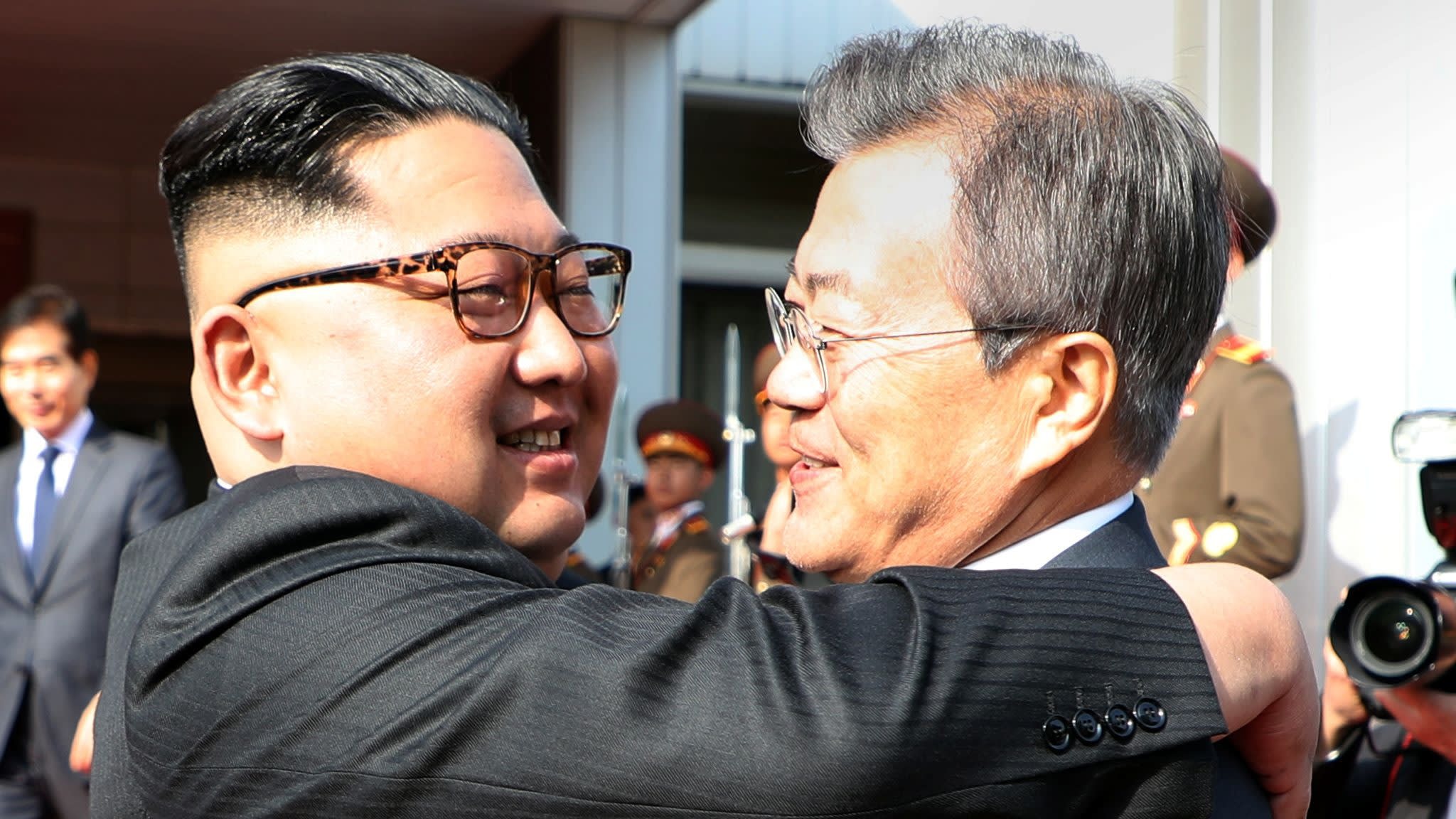 |
| North Korean leader hugs South Korean President during the inter-Korean summit on May 26. Photo: Getty |
Warming relations between the two countries since North Korean leader Kim Jong-un’s New Year’s speech have raised hopes of a peaceful reunification, and the summit between Kim Jong-un and US President Donald Trump on June 12 has added fuel to this cautious optimism.
However, this feeling has been experienced many times by people on the Korean peninsula.
“We had such hopes and excitement about reunification many times,” said Cheon Seong-whun, a former security adviser to the South Korean president. “When I was in high school in the mid-1970s, the North Korean delegation came to Seoul and we waved flags and flowers to welcome them. But the excitement was short-lived, and the promises were shattered in less than a year.”
However, Cheon and many other experienced experts still believe that the peninsula will be unified one day. Nikkei Asian Review recently had a discussion with experts from many countries around the world about the prospect of a unified Korea and a series of questions that need to be answered.
Unification of North and South Korea, will it become a reality?
The reunification of North and South Korea is arguably even more complicated than what happened between East and West Germany after the fall of the Berlin Wall in 1989. The question is, what does it take for the reunification process to succeed?
Mr. Cheon Seong Whun, currently working at the Institute for Policy Studies in Seoul, said that before the fall of the Berlin Wall, people in the two Germanys still maintained basic exchanges and cooperation, they had certain foundations, while South Korea and North Korea were "two completely separate societies".
According to him, the daily lives of North Koreans will still need to be maintained after unification, and South Korea should only gradually change this society. "It can be seen as the Korean version of the Marshall Plan. It is a huge amount of work that could take decades," he said.
Meanwhile, Kathryn Weathersby, a historian at Korea University in Seoul, said the concerns and grievances of the North Korean people need to be taken into account. “They have legitimate concerns about their survival. They don’t want to become the next Iraq or Libya or Romania or East Germany,” she said.
The historian stressed that it was important that the North Korean people be treated with respect.
According to Mr. Cheon Seong Whun, North Korean defectors are proof that unification is unlikely to happen quickly.
“North Koreans are used to having their basic needs subsidized by the government. They are not used to a competitive society… South Korea has preferential programs for employment and education. NGOs can support families and children. But it is very likely that they will fall from heaven to reality,” he explained.
Furthermore, according to this expert, one issue that needs to be taken into account is discrimination, because Koreans have their own accent and people will immediately know their origin, whether they are Korean or from the border region.
 |
| The prospect of a unified North and South Korea. Photo: AP |
Concerns after the unification process
If the unification process takes place, the big issue that people are concerned about will be the “fate” of Kim Jong-un and the ruling regime in Pyongyang.
“Kim Jong-un wants a grand bargain,” said Bong Young-shik, a North Korea expert at Yonsei University in Seoul. “He doesn’t want to spend 40 years as a dictator leading a poor country. He doesn’t want to end up like his father… But he also doesn’t want to end up like Gadhafi.”
Kim Jong-un has launched a massive purge of his opponents, so “if he changes his policy (and gives up his nuclear weapons), he will be the target of the same criticism. The regime will be severely damaged.”
Another concern for North Koreans, Weathersby said, is what legal issues might those running prison camps or developing ballistic weapons programs face? With such concerns about prosecution, they would certainly seek to ensure the independence of their system of government.
“As for Kim, will he be brought before the International Criminal Court in The Hague? If so, then he has a reason to defend his regime,” she added.
An economically collapsed, denuclearized North Korea is certainly no basis for peace. But integrating the North Korean economy into the world economy of the 21st century is by no means simple.
Eurizon SLJ Capital analysts Stephen Jen and Joana Freire estimate the cost of reunification to be around $2 trillion over 10 years, based on the reunification of East and West Germany.
Even with North Korea's backwardness and agricultural economy, compared to East Germany before unification, it would probably cost more money to build the country and ensure stability.
Asian political landscape after Korean unification
A unified Korean peninsula would reshape Asia’s political landscape. The question is whether this would mean the end of US military hegemony in the Pacific or the consolidation of Chinese influence? And how would other US allies in the region react?
Associate Professor Ji-Young Lee, who specializes in international relations at American University, believes that in order to strengthen its autonomy and limit outside interference, a unified North and South Korea may decide to end its alliance with the United States, even viewing the presence of the US military as a factor that destroys its identity and unity.
If things go this way, a unified North and South Korea would take a more pro-China approach to its security policy, signaling the end of the era of American hegemony in Asia.
According to him, the geopolitical position of a unified Korean peninsula will certainly force Beijing and Tokyo to closely monitor the relationship between this new country and the outside world, especially in military and political aspects.
“In my opinion, if the prospect of Korean unification becomes a reality, both Japan and China will certainly make further efforts to strengthen bilateral relations and deepen China-Japan-North Korea relations,” he said.
Meanwhile, Bruce Jones, deputy director of the policy program at the Brookings Institution, commented that any wise leader would certainly move the country toward strategic independence, maintaining close but distanced relations with both Washington and Beijing.
“A unified Korean Peninsula can only be achieved through a peaceful process and by the will of the people. There are three pillars that are needed to ensure this goal, namely liberal democracy, an open market economy and a completely nuclear-free peninsula,” Bong Young-shik stressed.
These are just challenges that are not easy to overcome, not impossible. Everything depends entirely on Kim Jong-un's decision about his arsenal and missiles./.


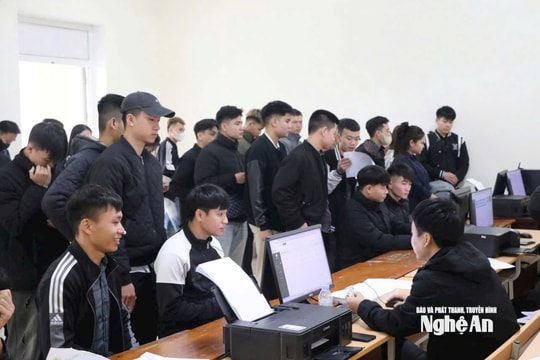
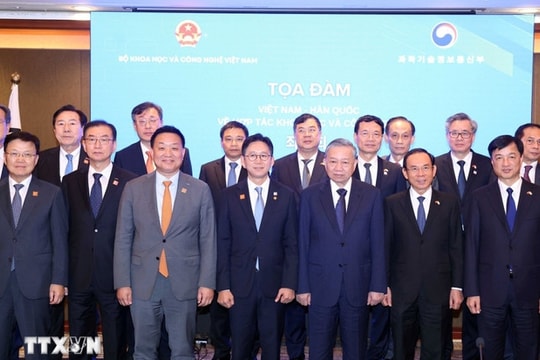
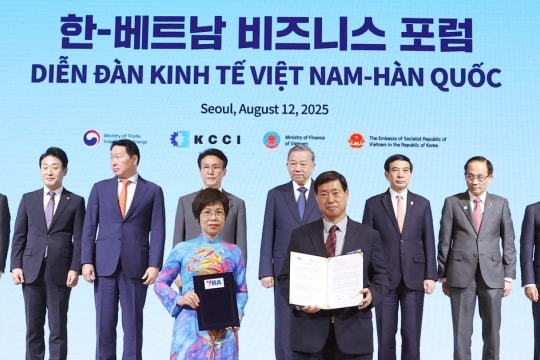
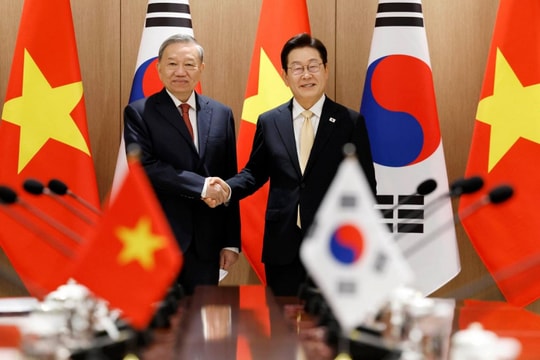
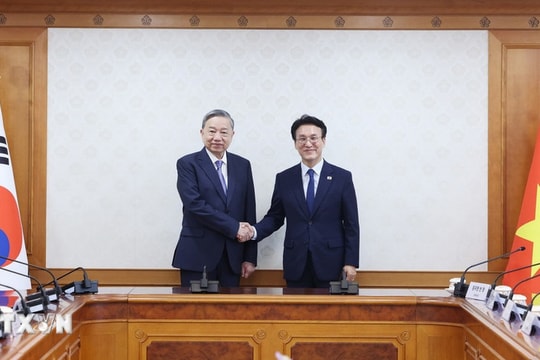
.jpg)
